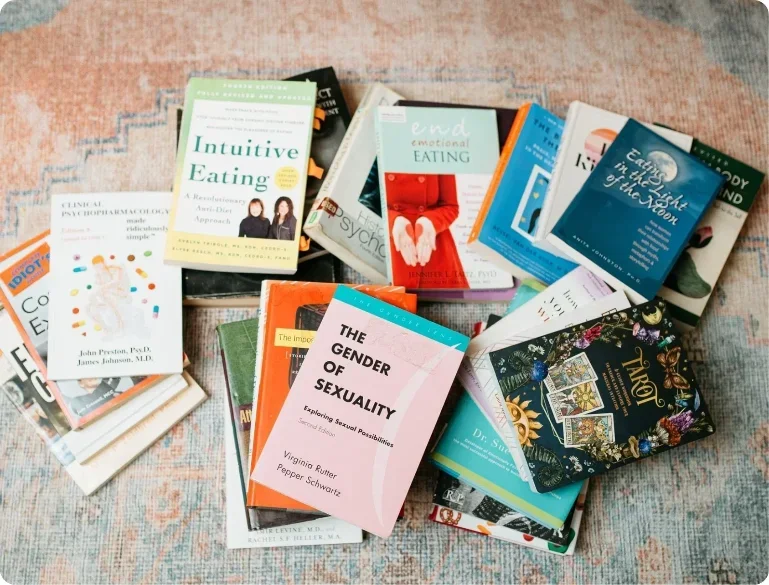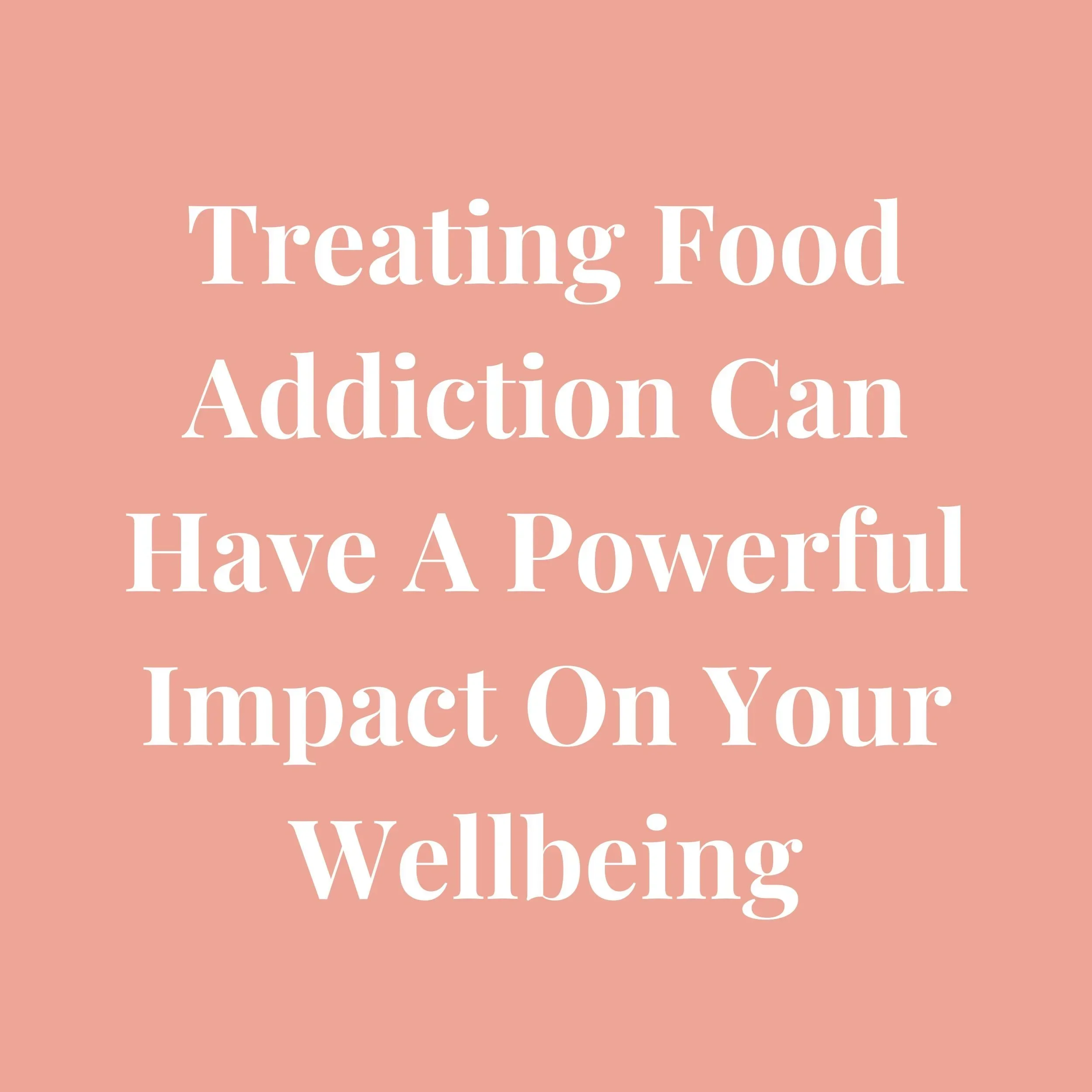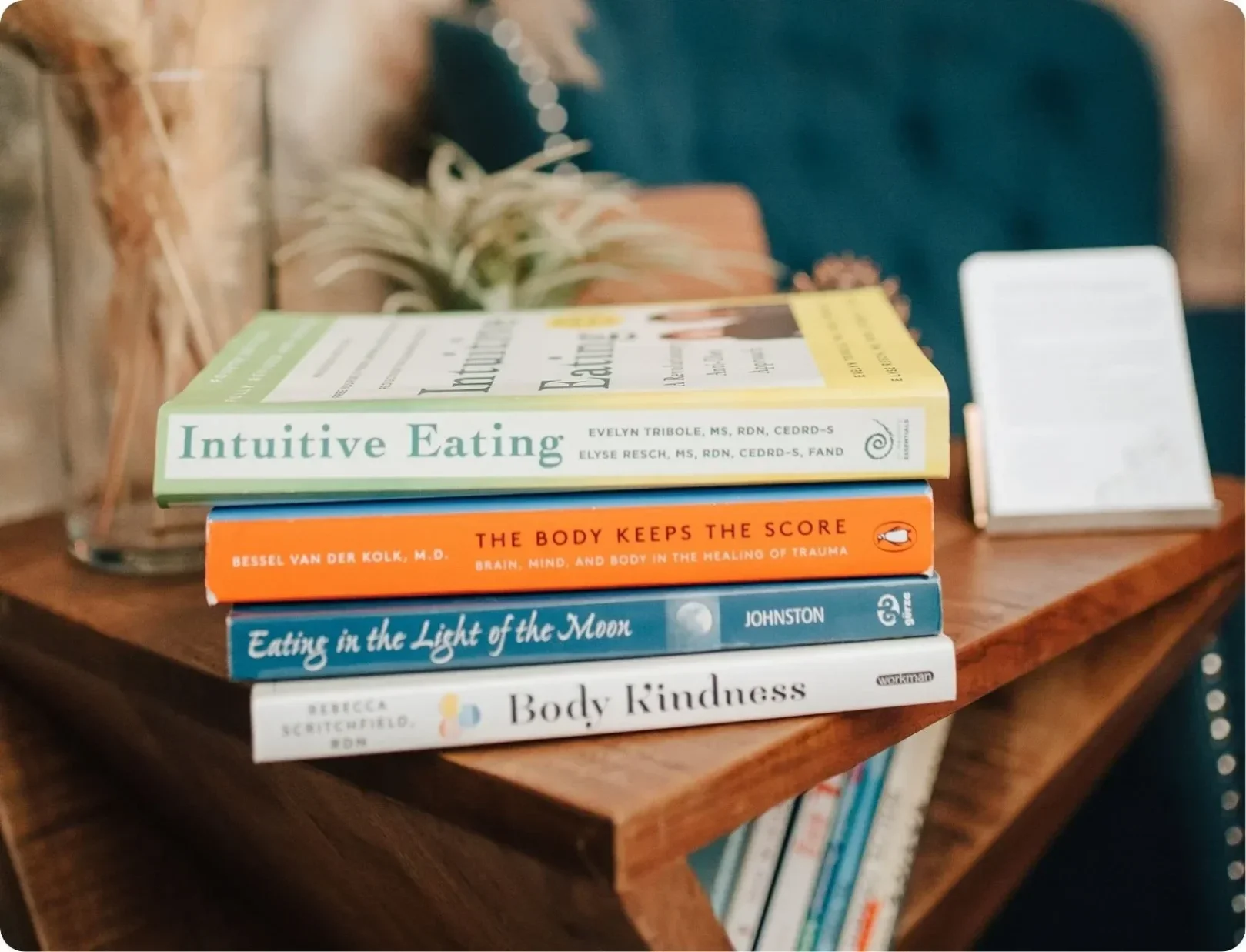Food
Addiction
Treatment
Help For People Who Struggle with a Food Addiction of Emotional Overeating
Is eating the first thing on your mind when you wake or the last thing you think of when lying down at night?
Are you constantly thinking about the next time you’ll eat, planning exactly what you’ll have and when you’ll have it?
Maybe you find yourself stashing away snacks, binging in secret or hiding the evidence of your eating from others?
Or, you might purposefully eat less in front of others to avoid judgment, and then binge when you’re alone.
Do you wish you could stop the obsessive eating and enjoy a “normal” relationship with food?
Are you afraid that you have developed an unhealthy relationship with food, but you don’t know how to break the cycle of behavior?
Do you eat compulsively or in excess, plan your day around meals or even feel anxiety at the thought of not being able to find food?
Maybe you experience uncontrollable urges to snack throughout the day or consume food to control stress and anxiety, only to feel guilty later.
Are you spending excessive amounts of money on food, putting on extra weight or stuck in a cycle of unsuccessful dieting?
Perhaps you worry about your self-image, lack of personal control or the negative effects that overeating can have on your body.
Are You Worried That A Love For Food Has Become An Unhealthy Obsession?
Eating Disorders
Are An Unfortunate
Trait
Of American Culture
Breaking food addiction and emotional eating habits can be as challenging as recovering from most drug addictions. However, unlike illicit drugs and alcohol, we need food to survive. And, food is everywhere in our society. It’s in commercials between segments for cooking shows. It’s on the signage along the streets we drive to get to work every day. It’s even in the air emanating from the cafes and restaurants that line the sidewalks we have to travel. From the fatty fast foods cooked to order to the sugar glazed confections and candy bars in the checkout line—we are constantly immersed in and surrounded by food.
Making matters worse, these addictive foods all have a powerful impact on our physiology that exacerbates their addictive nature. Fatty meats, deep-fried foods and sugary snacks all affect the nervous system by increasing serotonin and dopamine levels in the body. These chemicals stimulate our brains with sensations of pleasure and a sense of reward, making us think that what we are doing is good for us when in actuality, it could be detrimental. That’s why breaking the cycle of compulsive eating can be so difficult and why so many people struggle with their relationships with food.
Thankfully, you are not alone, and research has shown that there is a way to break the cycle of compulsive eating. With an experienced and compassionate therapist, food addiction treatment can help you develop and maintain a healthy relationship with food.
Emotional Eating Therapy in Austin Can Help You
Counseling for eating disorders can give you a sense of empowerment over your life and have a profound effect on your happiness and health.
Most people don’t naturally have the ability to understand why they have a particular food obsession or eat compulsively. However, counseling for eating disorders can help you understand yourself better, address underlying emotional motivators and offer you tools for identifying and minimizing triggers for overeating.
The reason we eat to feel better is because it works, in the moment—even if it harms us in the long run. Counseling for food addiction can help you better understand your brain chemistry and develop strategies and techniques to “rewire” your brain so that food no longer serves as a coping mechanism. Over time, you’ll be able to separate emotional hunger from physical hunger and learn how to tolerate emotions and physical sensations without turning to food.
What Will We Do In Therapy?
Step 1
We’ll start with talking about how your particular relationship with food affects you. Are you eating out of anger, loneliness, stress or grief? Maybe you scrutinize your appearance every time you look in mirror. We’ll identify where your relationship with food originates.
Step 2
I always tailor my sessions to each individual client. I’m skilled at:
psycho-dynamic therapy (looking at the subconscious and unconscious motivations for your relationship with food)
cognitive behavioral therapy, (which focuses on creating real-world strategies for changing responses to emotional or physical stimuli), as well as
somatic techniques (targeting subtle physical sensations, triggers and responses to stimuli that may be contributing to obsessive eating).
Step 3
It might be hard to imagine now, but food addiction therapy has the potential to fundamentally change the way eating affects you.
You can develop effective and positive coping mechanisms and a healthy relationship with food.
Common Concerns
You Don’t Have To Overcome
Emotional Eating On Your Own
If you are unable to step out of a pattern of harmful behavior or are worried about your health, emotional eating treatment can help you change your relationship with food.
I would be honored to answer any questions you have about my practice and how we would approach your specific situation in relation to emotional eating in therapy.



